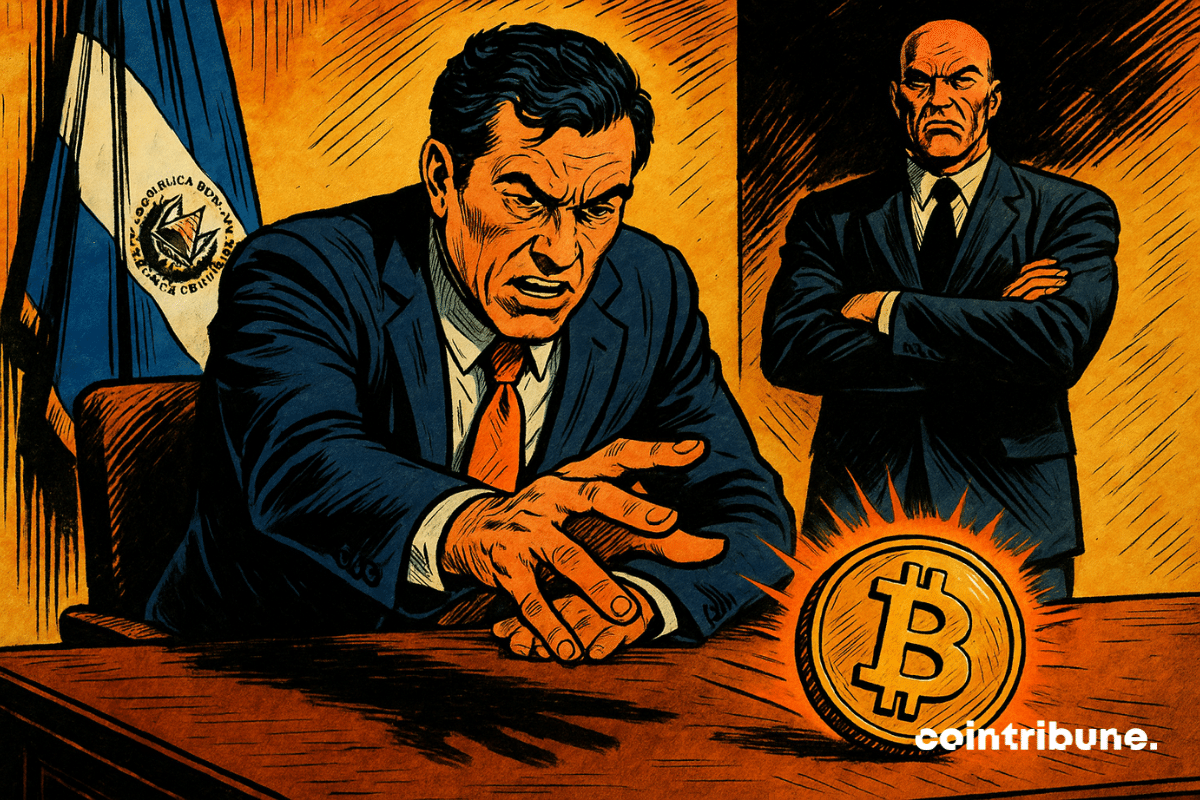IMF Report Disputes Bukele’s Economic Claims: Key Insights Revealed

El Salvador’s bitcoin Journey: A Shift in Strategy Revealed
Recent Developments in El Salvador’s bitcoin Policy
In a significant turn of events, El Salvador, which made headlines in 2021 for adopting bitcoin as legal tender, has reportedly ceased its bitcoin purchases since February 2025, according to a recent IMF report. This revelation contrasts sharply with the narrative promoted by President Nayib Bukele, who had previously claimed that the country was acquiring one bitcoin daily.
The Discrepancy: Bukele’s Claims vs. IMF Findings
Since late 2022, Bukele’s administration, through its dedicated bitcoin Office, has publicly celebrated the daily acquisition of bitcoin as a bold stance against traditional financial institutions. This narrative positioned El Salvador as a forward-thinking nation embracing cryptocurrency. However, the IMF’s compliance report, published on July 15, indicates that the government’s bitcoin holdings have remained static since February, raising questions about the authenticity of the government’s claims.
Central Bank President Douglas Pablo Rodríguez Fuentes and Finance Minister Jerson Rogelio Posada Molina have confirmed that all bitcoin wallets, both hot and cold, have been submitted to the IMF for verification. This transparency suggests that the figures are accurate and traceable, contradicting Bukele’s earlier assertions of ongoing purchases.
Wallet Consolidation: A Shift in Focus
While many anticipated ongoing bitcoin acquisitions, the blockchain activity observed primarily reflects the consolidation of existing wallets rather than new purchases. The IMF report clarifies that any increases in bitcoin holdings within the Strategic bitcoin Reserve Fund are merely the result of reorganizing previously owned assets.
This shift in narrative diminishes the image of a government actively accumulating bitcoin. If the intention behind the previous statements was to project stability, they now risk being perceived as misleading.
Navigating the Tension: Balancing IMF Relations and Crypto Image
The implications of this situation extend beyond mere asset management. El Salvador is caught in a complex strategic dilemma: it must meet the IMF’s demands for transparency while simultaneously maintaining its reputation as a cryptocurrency innovator.
The Bukele administration appears to be attempting to balance two conflicting narratives: that of a compliant IMF partner and that of a pioneering bitcoin nation. However, this dual approach may jeopardize the government’s credibility.
The IMF, for its part, acknowledges that consolidating bitcoin does not breach the terms of its financial support. Yet, this neutral stance does not eliminate the underlying tension of a nation striving for independence while remaining reliant on external financial assistance.
Conclusion: The Future of bitcoin in El Salvador
As El Salvador reassesses its bitcoin strategy, the question remains: has the country truly moved away from its bitcoin ambitions, or is this merely a strategic recalibration to secure essential financial backing? One thing is clear: the narrative of daily bitcoin purchases has come to an end. Fortunately, this shift does not appear to impact bitcoin‘s market performance, which continues on its steady path.
Author Information
Evans S.
With a keen interest in bitcoin since 2017, Evans has dedicated himself to exploring the evolving landscape of cryptocurrencies. Initially drawn to trading, he now focuses on understanding the broader implications of crypto advancements. As an editor, he aims to provide insightful and high-quality content that reflects the current state of the industry.
Disclaimer
The opinions expressed in this article are solely those of the author and should not be considered investment advice. Readers are encouraged to conduct their own research before making any investment decisions.







